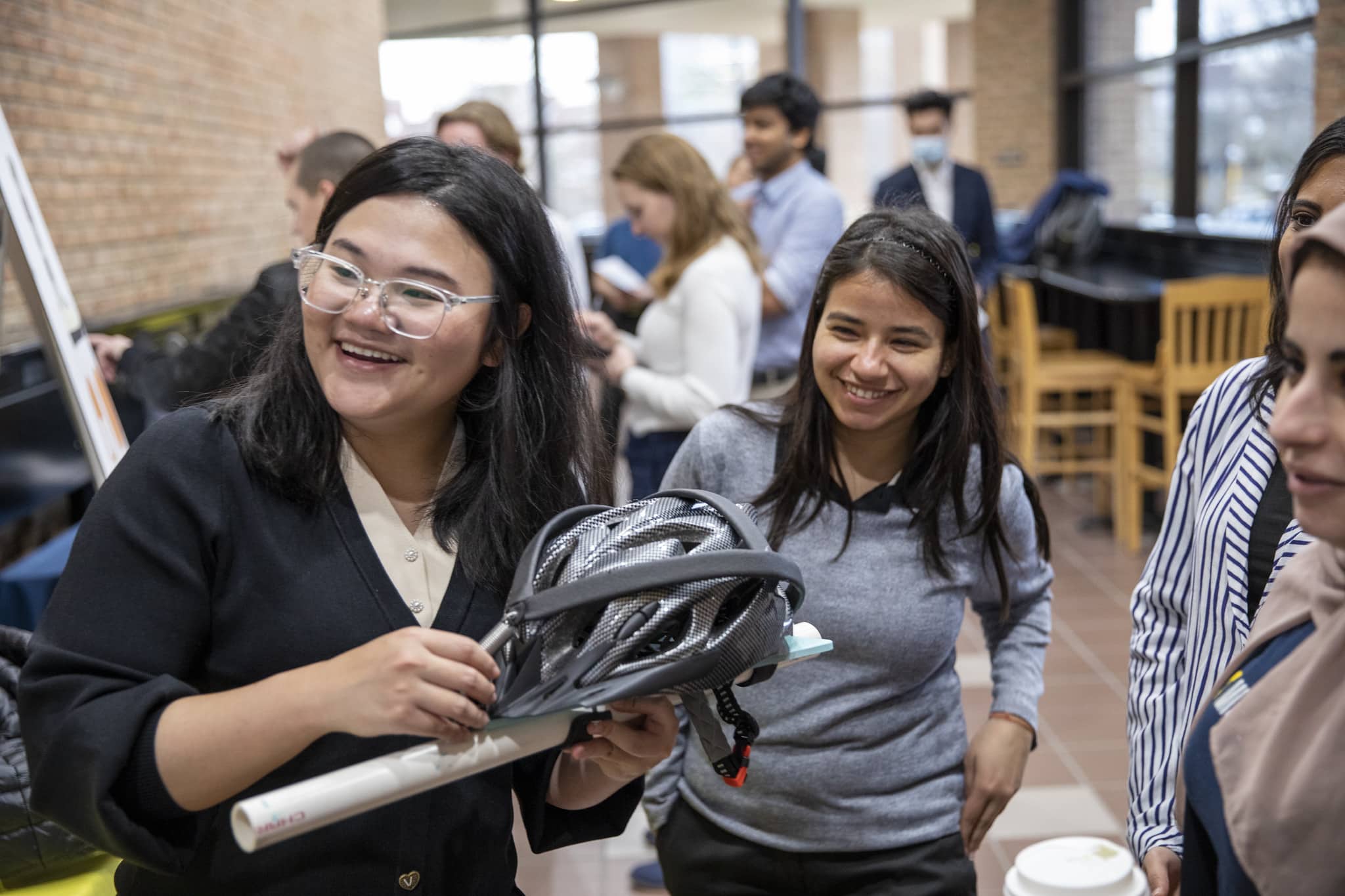The Michigan Engineering Design Expo was hosted on Thursday, Dec. 8, and offered students from ISD’s Analytical Product Design (APD) the chance to show off their innovative products and designs.
Design Expo provides a public forum for engineering students to demonstrate applications of their studies to real-life needs, also gave APD students the chance to reflect on what they learned during the past semester.


Focusing on the Human Perspective
ISD’s Analytical Product Design (APD) course teaches students how to design products from an integrative perspective that includes engineering, psychology, aesthetics, marketing and economic. Starting with a blank page, the students in this course work as a team following a systematic design process using rigorous qualitative and quantitative methods to create and physically realize real-life products to meet real customer needs.
“The purpose of APD is to introduce students to a very prescriptive and very comprehensive design process model,” said Hannah Myers, a Design Science PhD pre-candidate. “Put another way, in this class students will be introduced to a lot of different tools that are often used in design processes. It is our hope that once they have left the class and are engaging in design on their own, APD students will have a toolkit to reference that will help them build their own design process models that will best address whatever problems they need to solve in the future. This class isn’t about mastering a single specific design process, it’s about revealing how choices in a design process should be intentional, and introducing common tools that can be used to find the data that informs those choices. APD gives students the opportunity to engage with design on an analytical – rather than simply an intuitive – level.”
One constant through line found in numerous APD presentations and reflections was the appreciation of the emphasis on the human perspective.
“DESCI 501 gave me the opportunity to learn about the design cycle from a human-centered perspective,” said APD student Jamie Blatnikoff. “Every method we used prioritized the needs of the eventual consumers of the products we created.”
“While in Desci 501, I learned to consider many different factors playing into a design that I never realized were so significant.”
Alanna Smith, an APD student and graduating senior in Mechanical Engineering, felt the same.
“The most impactful thing I took away from DESCI 501 was to design for the user in a way that helps them but also gets to deeper root causes of the problem that the user cannot communicate.”


A Crossroads of Disciplines
Other students who came to APD were pleasantly surprised by the wide range of disciplines touched on during their coursework.
Aarohi Doshi is one of these students. Aarohi, who was at the Design Expo presenting on “Unblock” stress-reducing keychain her and her team had designed, came to the course from a psychology background. In addition to the key design principles taught by the class, Aarohi has learned about marketing, business development, and more.
In addition to these traditional disciplines, Aarohi has appreciated the chance to gain experience in interpersonal areas.
“At the same time I have learned about team building and bringing team efforts together,” Aarohi said. “I have been able to be a part of a team that is so diverse, in their cultures as well as their experiences.”
